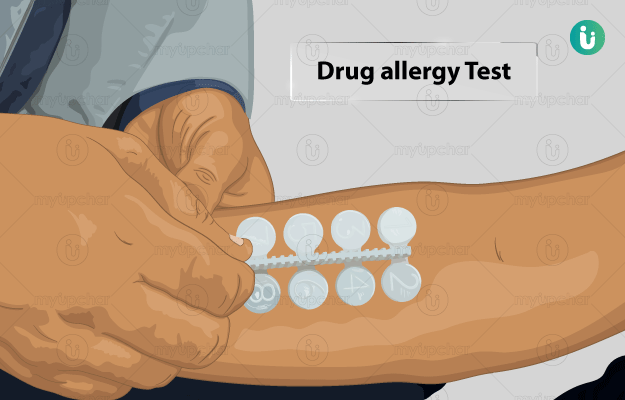What is Drug Allergy test?
A drug allergy test is performed to confirm if you are allergic to a medication.
Allergic reactions can be induced by any medicine—over-the-counter, prescribed or herbal. If you are allergic to a drug, your body will falsely recognise the drug to be a harmful substance (such as a bacterium or virus) and produces specific immune proteins called IgE antibodies against it.
Though you may not show severe reaction the first time, if you take the same drug the next time, the preexisting IgE antibodies stimulate the release of inflammatory chemicals such as histamine, which result in allergic symptoms. Apart from this IgE-mediated process, drug allergic reactions can also happen through other pathways and result in different reactions. A delayed allergic reaction or hypersensitivity can develop 24-72 hours after exposure to the drug.
A drug allergy test includes a skin test, test for specific IgE antibodies and a provocation test. The specific IgE antibodies test is only done when a skin test gives normal results. The test can be done for almost any drug, however, the most common drug allergies that this test checks for are against the following drugs:
- Amoxicilloyl
- Ampicilloyl
- Cefaclor
- Chlorhexidine
- Morphine
- Chymopapain
- Gelatin bovine
- Insulin bovine
- Insulin human
- Insulin porcine
- Succinylcholine
- Penicilloyl G
- Penicilloyl V
- Pholcodine
A provocation test, also known as drug challenge test, is a controlled stepwise administration of the drug to check if you are allergic to it.






























